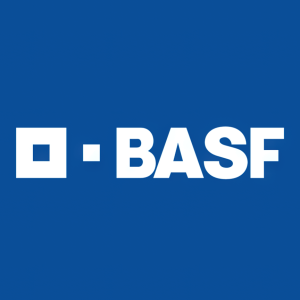BASF and Yara to evaluate low-carbon blue ammonia project at U.S. Gulf Coast
- BASF and Yara Clean Ammonia are collaborating on a low-carbon blue ammonia production facility in the U.S. Gulf Coast region, serving the growing global demand for low-carbon ammonia.
- The plant aims to have a capacity of 1.2 to 1.4 million tons p.a. and capture 95% of CO2 emissions, significantly reducing the carbon footprint of the ammonia produced.
- This project aligns with BASF's commitment to drive the sustainable transformation of the chemical industry and reduce its absolute CO2 emissions by 25% by 2030.
- None.
Insights
Analyzing...
OSLO, Norway, June 29, 2023 (GLOBE NEWSWIRE) -- BASF and Yara Clean Ammonia are collaborating on a joint study to develop and construct a world-scale low-carbon blue ammonia production facility with carbon capture in the U.S. Gulf Coast region. The companies are looking into the feasibility of a plant with a total capacity of 1.2 to 1.4 million tons p.a. to serve the growing global demand for low-carbon ammonia.
“Yara and BASF have successfully collaborated in the past and we are pleased to explore a new clean ammonia project together. In line with Yara Clean Ammonia’s strategy, we are working systematically to develop asset-backed supply to decarbonize agriculture as well as serving new clean ammonia segments such as shipping fuel, power production and ammonia as a hydrogen carrier,” said Magnus Krogh Ankarstrand, President of Yara Clean Ammonia.
Approximately 95 percent of the carbon dioxide (CO2) generated from the production process is aimed to be captured and permanently stored in the ground. This would allow Yara to serve its customers with clean ammonia with a significantly reduced product carbon footprint. For BASF, the new plant would act as backward integration to serve the company’s demand for low-carbon ammonia and would lower the carbon footprint of its ammonia-based products.
“This project underlines BASF’s commitment to drive the sustainable transformation of the chemical industry. Our existing Verbund sites in the region with integrated material flows and advanced infrastructure would be ideally suited for the integration of a new world-scale ammonia facility that has the potential to significantly improve the carbon footprint of both our own operations and the various industries we serve,” said Dr. Ramkumar Dhruva, President Monomers Division, BASF.
BASF and Yara are long-standing collaboration partners and are successfully operating a joint world-scale ammonia plant at BASF’s site in Freeport, Texas. The companies plan to complete the feasibility study on the low-carbon blue ammonia production facility by end of 2023.
The product characteristics of blue ammonia are identical to conventionally produced ammonia. Since the CO2 generated in the production process is captured and not released to the atmosphere, blue ammonia plays a significant role in the transition to alternative, less carbon-intensive products. BASF aims to reduce its absolute CO2 emissions by 25 percent by 2030 compared with 2018 and achieve net zero CO2 emissions by 2050. Yara has a strong track record in greenhouse gas abatement. Since becoming a listed company in 2004, Yara has almost halved its emissions and will reduce a further 30 percent by 2030. Yara aims to become climate-neutral and grow a nature-positive food future.
About BASF
BASF Corporation, headquartered in Florham Park, New Jersey, is the North American affiliate of BASF SE, Ludwigshafen, Germany. BASF has approximately 16,000 employees in North America and had sales of
At BASF, we create chemistry for a sustainable future. We combine economic success with environmental protection and social responsibility. More than 111,000 employees in the BASF Group contribute to the success of our customers in nearly all sectors and almost every country in the world. Our portfolio comprises six segments: Chemicals, Materials, Industrial Solutions, Surface Technologies, Nutrition & Care and Agricultural Solutions. BASF generated sales of
About Yara Clean Ammonia
Yara grows knowledge to responsibly feed the world and protect the planet. Yara Clean Ammonia is uniquely positioned to enable the hydrogen economy in a market expected to grow substantially over the next decades. We aim at significantly strengthening our leading global position as the world’s largest ammonia distributor, unlocking the green and blue value chains, and driving the development of clean ammonia globally.
Building on Yara’s leading experience within global ammonia production, logistics and trade, Yara Clean Ammonia works towards capturing growth opportunities in low-emission fuel for shipping and power, carbon-free food pro-duction and ammonia for industrial applications.
Yara Clean Ammonia operates the largest global ammonia network with 15 ships and access to 18 ammonia terminals and multiple ammonia production and consumption sites across the world, through Yara. Revenues and EBITDA for the full year 2022 were USD 4,422 million and USD 249 million respectively. Yara Clean Ammonia is headquartered in Oslo, Norway.
www.yaracleanammonia.com
| BASF Media Contact | Yara Clean Ammonia Contact |
| Lauren Sinclair | Hilde Steinfeld |
| Communications Monomers Division | Communications Director |
| Phone: 313-418-5008 | Mobile: +47 99 35 30 30 |
| Email: lauren.sinclair@basf.com | E-mail: hilde.steinfeld@yara.com |








